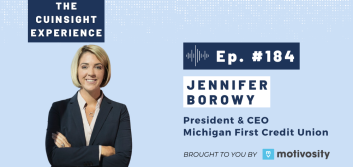Happiness can lead to financial freedom

The United States is among 31 countries examined in a recent Cambridge University study that finds an alarming number of adults are deficient in basic financial skills. According to a BBC analysis, the study concludes that “policy intervention will be needed to ensure adults have the basic skills they need to navigate their way through an increasingly complex financial world.”
The conclusion raises some questions. Is the financial world any more complicated now than it was decades ago or are more of us average Joes in tune to the financial world thanks to technology? If, as the study suggests, an increasing number of adults are lacking basic arithmetic skills in a world with so many technological advancements, could it be that “policy intervention” is the problem, not the solution? Could it be that “the substantial number” of 16 to 65-year-olds in this 100,000-person study struggle with debt because of bad habits?
Let’s address the latter in respect to one of the most basic finance lessons commonly taught to young children by both parents and financial literacy advocates—Needs vs. Wants. Explaining the difference to elementary and middle school students is relatively easy. In their natural reluctance, the questions students ask become more clever with age but with empathetic reasoning on the teacher’s part, students come to understand and accept the clear differences between needs and wants.
“Suzy, I understand your argument about the need for accurate weather forecasts, and did you know the National Weather Service broadcasts can be heard on the radio, too? You can purchase a radio for as little as $10. So, there’s no need to purchase cable.”
The Needs vs. Wants lesson is just as applicable to adults, although it might look different. For adults, separating needs and wants could be as simple as recognizing the difference between happiness and pleasure.
Pleasure is fleeting. We get pleasure from stuff, which often becomes clutter or worse, comes with debt. Often, we think the debt is justified and that if we could just be done with it, we would be happy. Thus, begins a negative cycle.
Of course, not all debt is unavoidable, and not all of us experiencing debt are guilty of overindulging in pleasure.
Let’s consider, however, the amount of credit card debt in the U.S. According to a new WalletHub study, Americans owe more than $1 Billion in credit card debt—a new high! The average U.S. household owes $8,600 on credit cards. ABC News points to a booming economy and consumer confidence as the reason behind our spending. Would it be a stretch then to surmise that much of the spending is want-based rather than need-based? Thus, the cycle continues.
If we, as adults, aim to improve our fiscal state, we can practice the Needs vs. Wants exercise by pursuing happiness without enduring the misery associated with debt, which is often caused by the pursuit of pleasure. Happiness is not synonymous with pleasure. If we rely on pleasure to make us happy, the level of pleasure must be constantly increased, which becomes unattainable.
Happiness is a state of being, a decision, and as perceptively discussed by Dennis Prager in a 2007 Townhall commentary, a moral obligation because when we choose to be happy, we make those around us happy.
Happiness is best attained when we simplify our lives, ease our burdens, divest of stuff. Ask any retiree or just Google “happiness and simplicity.” Don’t worry, be happy, and live debt-free.





